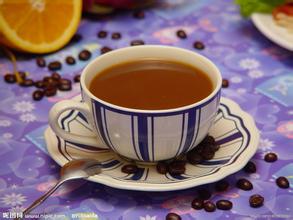Excellent taste of Arusha coffee estate in Tanzania. Flavor characteristics
The flag of Tanzania is rectangular, with a ratio of length to width of 3:2. The flag is made up of green, blue, black and yellow, and the upper left and lower right are green and blue.
Two equal right triangles with a wide black strip with yellow edges running diagonally from the lower left corner to the upper right corner. Green represents land and symbolizes faith in Islam; blue symbolizes rivers, lakes and seas; black represents black Africa; and yellow symbolizes rich mineral resources and wealth. Tanzania has a federal presidential system. For a long time, the Revolutionary Party was in power for a long time, and the political situation was stable. In the first multi-party general election held in October 1995, the opposition Civic United Front (CUF) accused the Revolutionary Party of fraud in the general election and refused to recognize the Zanzibar Salmin government. In June 1996, the Revolutionary Party held a national Congress, and Mkapa was elected chairman of the party, realizing the unified leadership of the party and government. In November 1997, the Revolutionary Party held its fifth national Congress, and Mu was re-elected chairman of the party. In October 1999, Tanzania's "founding father" and former president Nyerere died. While holding high the banner of unity and unity advocated by Nepal, he vigorously strengthened the building of the ruling party and political power, and the political situation remained stable. The Constitution of the United Republic was formulated in April 1977 and amended 14 times later. The United Republic has a coalition government and a local government in Zanzibar. In 1992, the 8th Amendment to the Constitution clearly stated that Tanzania is a multi-party democracy and pursues the policy of socialism and self-reliance. The 11th constitutional amendment in 1994 provides that the Government of the United Republic shall have a President and a Vice-President, the President shall be the head of State, the head of Government and the Commander-in-Chief of the armed forces, who shall be directly elected by voters and elected by a simple majority for a term of five years, may be re-elected for a second term. The President and the Vice-President must come from the same political party and from the unicameral system of the mainland and Zanzibar respectively, which is called the National Assembly and is the highest legislature of the United Republic. Parliamentary elections are held at the same time as presidential elections, held every five years. The president has the power to appoint ten members of parliament. The current parliament is the tenth parliament after independence, which came into being in November 2010, with a total of 350 seats. There are 261 seats for the Revolutionary Party, 48 seats for the Democratic Development Party, 35 seats for the Civic United Front, 4 seats for the National Construction and Reform Conference, 1 seat for the Labor Party and 1 seat for the United Democratic Party. Speaker Anne Makinda (Anne Makinda)
Drinking Tanzanian coffee, especially the small round bean peaberry, is always impressive. Coffee is like the simple, frank and enthusiastic national character of Tanzania. Its refreshing acidity and medium mellowness complement sweet citrus and floral aromas. This coffee tastes great whether it's a hot drink or iced coffee. With oranges or berries, it can show its bright flavor. You can experience that different ethnic groups produce different coffee flavors, and the same land gives birth to coffee trees and people in Tanzania at the same time, so it is cheap to take care of the farm pruning and maintenance of coffee plantations, many of which rely on manual processing rather than machines. During the coffee growing season, the job of coffee workers is to manually check to remove the leaves of some sick or growing insects. Coffee processing in Tanzania is highly dependent on labor, but it also brings jobs to locals and increases household income. Workers earn their wages by collecting the number of coffee fruits. Small farm women will bring coffee fruits to the farm in their hand-made sacks to calculate the strong aroma after moderate or moderate roasting, then grind them into fine powder and soak them in a pot of boiling water. call friends to sit around and taste, feeling fragrant and tonguing. The famous coffee brands in Tanzania are Africafe, Tanica Cafe, Kilimanjaro and so on, and their quality is much better than the Nestle coffee we often drink. Tanzanian coffee has long been loved by Europeans and has joined the ranks of famous products. Europeans give Tanzanian coffee the nickname "coffee gentleman". Chinese coffee connoisseurs refer to it as the "king of coffee" Blue Mountain and the mocha of "coffee lady". The owners of the coffee three swordsmen farms are Indians, Scandinavians, and Britons, of course, there are also locals, but most of them are small farms, but most of the farms and processing farms are managed by local people. Labor in Tanzania is cheap, so much of the work of pruning and maintaining coffee plantations in Tanzania depends on manual processing rather than machines. During the coffee growing season, the job of coffee workers is to manually check to remove the leaves of some sick or growing insects. Coffee processing in Tanzania is highly dependent on labor, but it also brings jobs to locals and increases household income. Workers earn their wages by picking the number of coffee fruits, and women on small farms use their hand-made sacks to bring coffee fruits to the farm to calculate the money.

Important Notice :
前街咖啡 FrontStreet Coffee has moved to new addredd:
FrontStreet Coffee Address: 315,Donghua East Road,GuangZhou
Tel:020 38364473
- Prev

Introduction to the Flavor and Taste of Fine Coffee in Snow vein Manor of Bolivia
The legal capital, the seat of the Supreme Court, with a population of 284000, 2790 meters above sea level. Founded in 1538, the city was formerly known as Chuquisaka. The city witnessed the first uprising in South America against Spanish rule in 1809. Bolivia declared its independence here in 1825 and became the capital in 1826. In 1839, it was renamed Sucre to commemorate the second president of Bolivia, General Antonio Jos é Sucre.
- Next

Introduction to Fine Coffee with strong Flavor Flavor in Indonesia
Manning coffee is considered to be the most mellow coffee in the world. When tasting Mantenin, you can feel obvious lubrication on the tip of the tongue and low acidity, but this acidity can also be obviously tasted. Leaping slight acid mixed with the richest aroma, so that you can easily feel the lively factor in the mild fragrance. In addition, this kind of coffee has a light mud.
Related
- Does Rose Summer choose Blue, Green or Red? Detailed explanation of Rose Summer Coffee plots and Classification in Panamanian Jade Manor
- What is the difference between the origin, producing area, processing plant, cooperative and manor of coffee beans?
- How fine does the espresso powder fit? how to grind the espresso?
- Sca coffee roasting degree color card coffee roasting degree 8 roasting color values what do you mean?
- The practice of lattes: how to make lattes at home
- Introduction to Indonesian Fine Coffee beans-- Java Coffee producing area of Indonesian Arabica Coffee
- How much will the flavor of light and medium roasted rose summer be expressed? What baking level is rose summer suitable for?
- Introduction to the characteristics of washing, sun-drying or wet-planing coffee commonly used in Mantenin, Indonesia
- Price characteristics of Arabica Coffee Bean Starbucks introduction to Manning Coffee Bean Taste producing area Variety Manor
- What is the authentic Yega flavor? What are the flavor characteristics of the really excellent Yejasuffi coffee beans?

